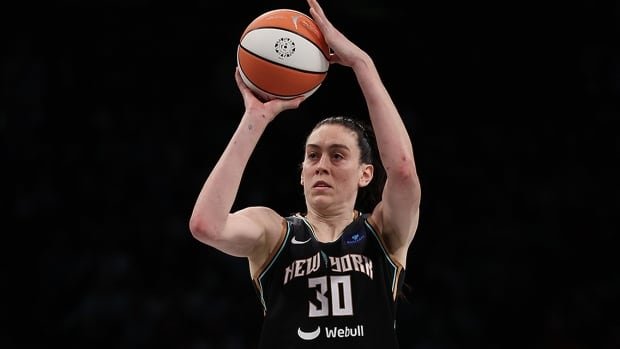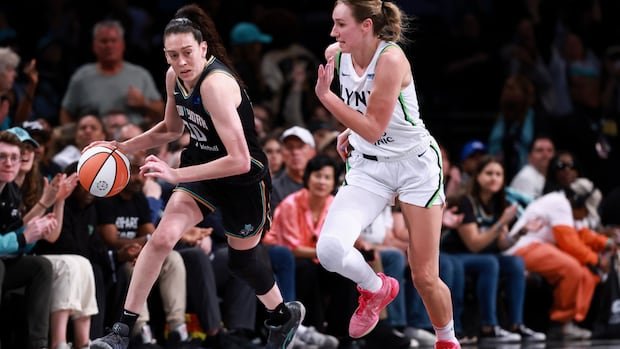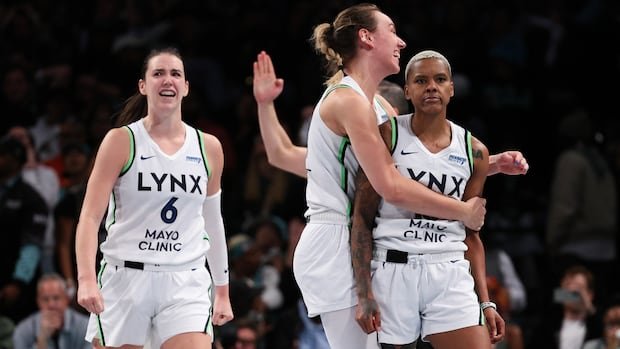New York Liberty star Breanna Stewart and her wife Marta Xargay received threatening homophobic anonymous emails after Game 1 of the WNBA Finals.
The emails went directly to Xargay’s account, which was a bit unnerving for the couple, Stewart said at practice on Tuesday.
“The fact it came to Marta’s email is something she [had to] see. The level of closeness was a little bit different,” she said. “Make sure that myself and Marta are okay, but that our kids are the safest.”
The two-time MVP said she notified the team about the emails and they escalated it to league security.
“We’re taking the proper precautions. I think the threats continue to build after Game 1,” Stewart said. “We love that people are engaged in our sport, but not to the point where there’s threats or harassment or homophobic comments being made.”
WATCH l Liberty evens WNBA Finals series at 1-1:
New York beats Minnesota 80-66 in Game 2 of the WNBA Finals to even their best-of-five series 1-1. Breanna Stewart records a game-high 21 points, an WNBA Finals record seven steals, eight rebounds, five assists and one blocked shot. Chatham, Ont., native Bridget Carleton finishes with 8 points, four rebounds and three assists for the Lynx.
The New York Post first reported the threats.
Stewart said Xargay filed a complaint with police at the advice of the team and security.
“Being in the Finals and everything like that it makes sense to file something formal,” Stewart said.
The New York Police Department confirmed that it received a report of aggravated harassment involving emails sent to “a 33-year-old victim.” The department’s hate crimes taskforce is investigating, a spokesperson with the department’s media relations team said.
More online threats to players this season
Stewart said she doesn’t usually look at most of the messages she receives and that they usually go to her agency, but once she was made aware of them by her wife she wanted to let fans know there’s no place for it.
“For me to use this platform to let people know its unacceptable to bring to our sport,” she said.
This season there has been a lot more online threats to players through social media and email.
Commissioner Cathy Engelbert addressed the rising number of attacks that players have dealt with on social media at her state-of-the league address before Game 1.
She said there’s no place for it and the league will work with the players’ union to figure out what they can do together to combat it. Engelbert mentioned technology and help for mental health.
“It just is something where we have to continue to be a voice for this, a voice against it, condemning it, and making sure that we find every opportunity to support our players, who have been dealing with this for much longer than this year,” Engelbert said.
WATCH | Lynx overcome 18-point deficit, rally to OT win in Game 1:
After trailing by 18 points in the second quarter, Minnesota rallies to defeat New York 95-93 in overtime to take Game 1 of the WNBA Finals. Chatham, Ont., native Bridget Carleton finishes in with five points, one assist and three rebounds.





